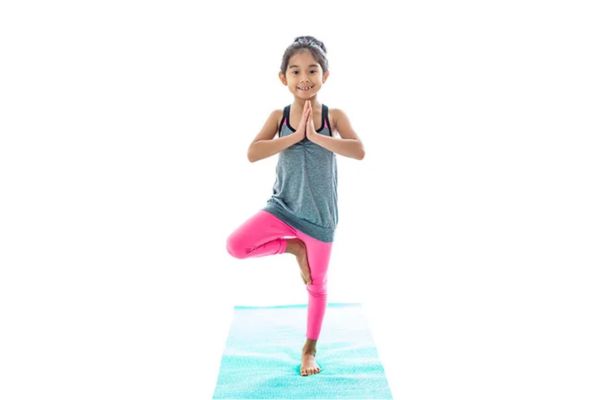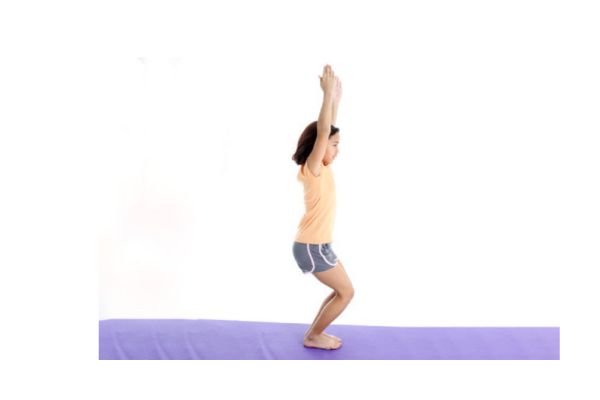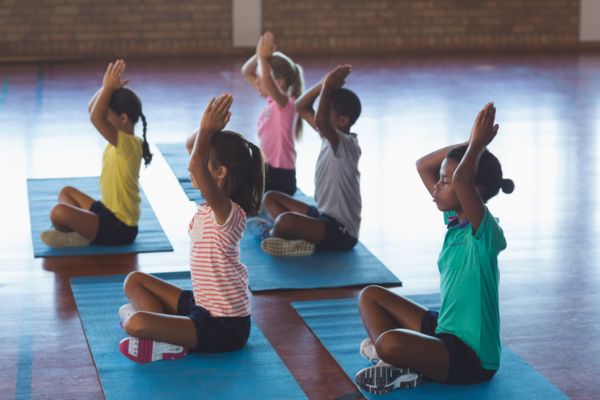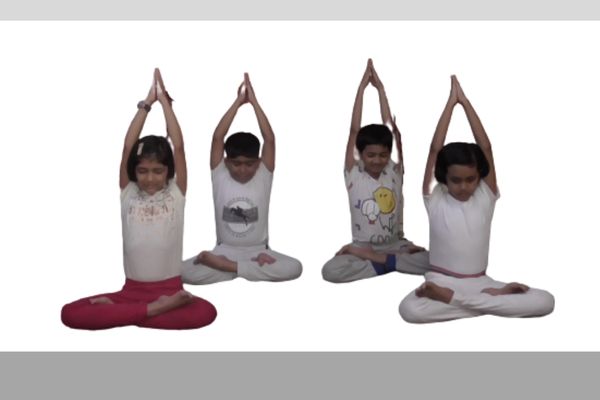In today’s fast-paced world, where stress and anxiety seem to be common companions even for children, the importance of maintaining physical and mental well-being cannot be overstated. While adults often turn to various forms of exercise and relaxation techniques to cope with the pressures of modern life, we sometimes overlook the potential benefits these practices can offer to our children. One such practice that holds immense promise for the holistic development of children is yoga.
Yoga, an ancient discipline originating from India, has gained widespread popularity worldwide for its numerous health benefits. Traditionally, yoga was primarily practiced by adults, but in recent years, there has been a surge in interest in introducing children to yoga at an early age. This trend is backed by an increasing body of research that highlights the positive impact of yoga on children’s physical health, emotional well-being, and cognitive development.
So, why exactly is it beneficial to get your kids “yoga-ready”? Let’s delve deeper into the myriad advantages that introducing children to yoga can bring:

Kids yoga for Physical Fitness
In an era dominated by screens and sedentary lifestyles, ensuring that children engage in regular physical activity is crucial. Yoga offers a gentle yet effective way to promote physical fitness in children. Through a series of poses (asanas) that stretch, strengthen, and tone the body, yoga helps children develop flexibility, balance, and coordination. Moreover, practicing yoga can enhance posture, alleviate muscular tension, and improve overall body awareness, laying the foundation for a lifetime of good physical health.
Kids yoga for Stress Reduction
Children today face a multitude of stressors, ranging from academic pressures to social challenges. Yoga provides them with valuable tools to manage stress and cultivate inner calmness. Breathing exercises (pranayama) incorporated into yoga practice help children learn how to regulate their breath, promoting relaxation and reducing anxiety. Additionally, the mindful nature of yoga encourages children to be present in the moment, fostering a sense of peace and tranquility amidst life’s ups and downs.

Kids yoga for Emotional Wellbeing
Emotional intelligence is a crucial skill that contributes to children’s overall happiness and success in life. Yoga offers a holistic approach to emotional well-being by encouraging self-awareness, empathy, and compassion. Through yoga, children learn to recognize and express their emotions in a healthy manner, developing resilience and coping mechanisms to navigate life’s challenges. Moreover, yoga teaches valuable life lessons such as patience, perseverance, and acceptance, which are essential for building strong emotional foundations.
Kids yoga for Cognitive Development
The benefits of yoga extend beyond the physical and emotional realms to encompass cognitive development as well. Research indicates that yoga can enhance cognitive functions such as attention, memory, and executive functioning in children. The focused attention required during yoga practice strengthens neural connections in the brain, improving concentration and mental clarity. Furthermore, the integration of movement, breath, and mindfulness in yoga fosters creativity and enhances problem-solving skills, unlocking the full potential of children’s minds.

Social Skills enhancement through Kids yoga
Yoga is often practiced in a group setting, providing children with valuable opportunities for social interaction and peer bonding. Through partner poses and group activities, children learn to cooperate, communicate, and collaborate with others, fostering a sense of community and belonging. Moreover, the supportive environment of a yoga class encourages empathy and respect for others, nurturing important social skills that are essential for building positive relationships throughout life.
Body Positivity with Kids yoga
In today’s image-conscious society, children are often bombarded with unrealistic standards of beauty and body perfection. Yoga promotes a positive body image by emphasizing self-acceptance and appreciation for one’s unique physicality. By encouraging children to focus on how their bodies feel rather than how they look, yoga fosters a sense of body positivity and self-confidence. Through regular practice, children learn to celebrate their bodies as powerful vehicles for self-expression and exploration, free from judgment or comparison.

Conclusion
In conclusion, introducing children to yoga at an early age can have profound and far-reaching benefits for their physical, emotional, and mental well-being. By providing them with a holistic toolkit for self-care and personal growth, yoga equips children with valuable skills that will serve them well throughout their lives. As parents and educators, it is our responsibility to nurture the holistic development of our children, and integrating yoga into their lives is a powerful way to support them on their journey to becoming happy, healthy, and resilient individuals. So, let’s get our kids “yoga-ready” and empower them to thrive in mind, body, and spirit.
